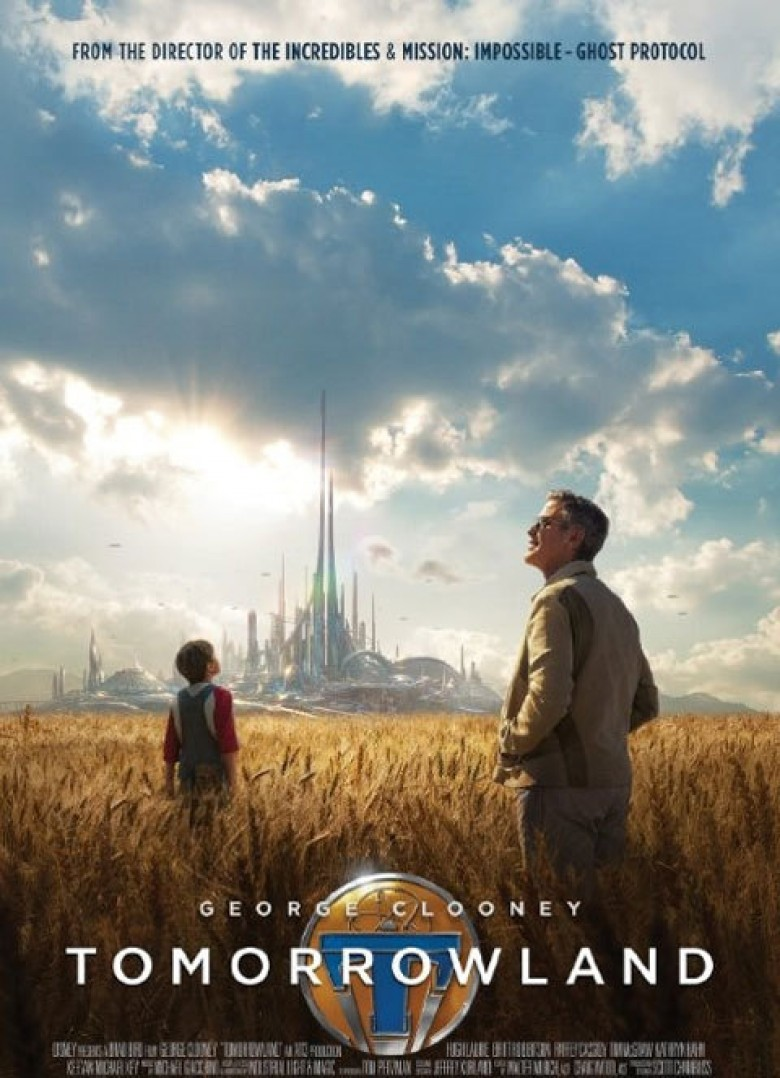“Which wolf wins?”
The only constant the future holds is how today’s will look nothing like tomorrow’s. It would have been an amazing experience to see the vision Walt Disney had for his Experimental Prototype Community of Tomorrow in Orlando, but he of course sadly passed away in 1966 and that land became the Magic Kingdom in 1971 instead. His ideas were eventually partly utilized in conjunction with a second amusement park (aptly coined EPCOT) to accompany the one capped by Cinderella’s castle, but Walt had hoped to construct a place where a new world could be invented for his grandchildren to live in peace away from the noise, clutter, and crime of “regular” cities. Joined together by his conceptual Tomorrowland Transit Authority PeopleMover brought to life, what ultimately came to fruition via his Imagineers’ minds was a place for entertainment.
So here we are almost a half-century past Disney’s passing and the world has for all intents and purposes devolved into his worst fears. I’m not saying that had he lived this community of the future would have provided an isolated haven for intellectuals to solve humanity’s ails, but it’s a captivating thought to imagine. And that’s exactly what director Brad Bird, co-writer Damon Lindelof, and co-story writer Jeff Jensen did. They went back to his original idea and sought to realize it in a future so far removed from today that it would still be relevant decades later—something EPCOT Center being at best thirty years obsolete cannot claim. What if this utopia existed in an alternate dimension bridged with ours to recruit like-minded individuals seeking progress? What if this Tomorrowland was the key to Earth’s salvation?
A lot of talk surrounding the film presently revolves around its Objectivist principles in a sour light thanks to the critical sphere’s liberal slant. While it does play as a sort of Atlas Shrugged for the PG-audience, it doesn’t preach. Nor does it necessarily force-feed ubiquitous environmental concerns stemming from an impending apocalypse by our indifferent hands despite such themes pushing front and center even stronger. No, Lindelof and Bird approach a delicate balance between the two, toeing party lines in order to birth a universal sense of optimism from otherwise selfish complacency. And what better message could we give our youth? We acknowledge (for the most part) what’s happened to our planet and our role. Rather than argue about the necessity of a path forward, shouldn’t we simply agree to believe change is possible?
This is the crux of Tomorrowland and the world teenager Casey Newton (Britt Robertson) sees upon touching a small metal pin found amongst her things after her father (Tim McGraw‘s NASA engineer Eddie) helps post bail, releasing her from the consequences of trespassing and hacking a planned demolition site. Unwittingly thrust into the position of savior by this revamped for the Twenty-First Century EPCOT Center CGI-metropolis’ head recruiter Athena (Raffey Cassidy), she finds herself completely out of her depth but desperate to tread water. Can she save the world? Maybe. Does Athena know how? Nope. Their only chance to discover Casey’s potential is to find a way there despite its warden (Hugh Laurie‘s Nix) locking all doors. It’s therefore up to Frank Walker (George Clooney), an exiled member of Tomorrowland’s elite, to begrudgingly spearhead their return.
Far from a perfect film—any in-depth detail about hows and whys besides the above general summary are delivered in rapid-fire monologues making way for emotionality and action sequences—Bird and company do achieve a sense of awe to inspire children seeking the unknown. And that’s something we shouldn’t marginalize because grand political ideals are glossed over and used simplistically. This is a PG family film produced by Walt Disney, so you’ve definitely entered the wrong theater if you’re expecting a philosophical dissertation with concrete theses explaining how to turn things around. That stuff is merely background dressing for adults to comprehend clichéd causalities while their kids quickly process that the world is ending and only Casey can stop it. Their hero isn’t a government or a professional. She’s an idealistic nerd who never learned the word “quit”.
Hollywood has been missing this heart for a while and it’s hardly surprising the man behind The Iron Giantwould be the one to bring back such a notion. Because beyond the comically hammy performances of flesh-covered robots smiling broadly while delivering villainous threats or a glass-walled utopia populated by flying spaceships and publically-accessible jetpacks lies a sorely needed sense of hope. It’s no coincidence Casey is from Cape Canaveral with a front row seat to our dismantled space program. When everyone’s packing up and going home, satisfied with the status quo and/or ambivalent about moving forward when wars are depleting resources and lives here and now, dreamers like Casey still exist. Just like the film’s Tomorrowland hunts for these kindred spirits, the film itself yearns to ignite a spark in those watching to be great.
Robertson possesses the perfect amount of infectious excitement to do just that. She must in order to reinvigorate Clooney’s resigned Frank. Casey’s drive propels the plot once you start sensing story gaps that melted away for pure visceral impact. There’s definitely a sleight of hand in this regard, but the target audience should be too enraptured in wonder to notice. They’ll be too busy enjoying the humor, feeling love’s pain, and accepting how good intentions and pragmatic decisions for the greater good will never be enough for someone like Nix seeking blanket solutions. Walt saw the possibility for Ayn Rand‘s “Valley” or a “Eureka” level field of free experimentation with brilliant minds, but never had time to put it into practice. Tomorrowland honors that vision by introducing a new generation to the possibilities of building it themselves.
Score: 7/10
Rating: PG | Runtime: 130 minutes | Release Date: May 22nd, 2015 (USA)
Studio: Walt Disney Studios Motion Pictures
Director(s): Brad Bird
Writer(s): Damon Lindelof & Brad Bird / Damon Lindelof, Brad Bird & Jeff Jensen (story)

